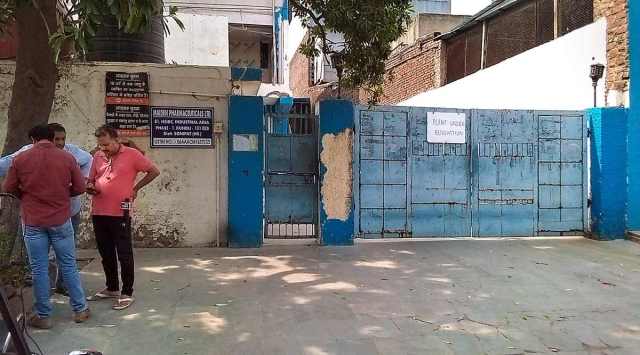A select committee of the Gambian National Assembly has concluded that the deaths of 70 children due to acute kidney injury are linked to their consumption of four contaminated syrups made by Indian pharma firm Maiden Pharmaceuticals. The committee, in its report submitted this week, has recommended that Maiden be blacklisted, its products banned in the Gambian market and legal action be pursued against the company.
Between June and November this year, 82 children were confirmed to have suffered acute kidney injury in the Gambia. Of them, 70 died.

“The Select Committee is convinced that Maiden Pharmaceuticals Ltd. is culpable and should be held accountable for exporting the contaminated medicines that was linked to the death of at least 70 children,” according to the report. It added that the syrups were contaminated with diethylene glycol and ethylene glycol.
The committee said that efforts were made to contact Maiden Pharmaceuticals in India, “but they have not been answering to their emails and calls.”
Maiden has denied the allegations. Its manufacturing unit in Sonepat was shut down by the Central Drugs Standards Control Organisation for alleged irregularities in processes. But India maintains that sufficient clinical details to establish causality between the deaths and the consumption of medicine hasn’t been shared by the country or the WHO that raised an alert October linking the deaths to Maiden’s four syrups. The Indian Express sent a query to Maiden on the report but no comment was received.
An investigation by India’s drug controller said that it found no contamination – by ethylene glycol and diethylene glycol – in the samples from the same batch exported to Gambia maintained by the company as a quality control measure.
As per the findings of the Gambian committee, 83% of the 82 cases of acute kidney injury were in children below the age of three. And 60.9% of the victims were male infants.
Story continues below this ad
The children came to hospital with complaints of not being able to urinate despite none of them showing signs of dehydration.
According to a paediatrician’s testimony, the interval between the inability to pass urine and when some of these syrups were ingested ranged between one and six days, with the majority getting the symptom within two to three days.
Initially suspecting an infection, samples from the children were sent for testing – and many of them did have various pathogens including certain strains of E. coli that can affect the kidneys.
However, the report said that the kidney injury was attributed to a “toxin” because according to a nephrologist, E.coli could not explain the scale of the injuries, the sheer number of those affected and the high fatality rate. Moreover, lab reports showed very high levels of creatinine, liver enzymes, and uric acid inconsistent with children under the age of two. Even dialysis didn’t help, the expert said, underlining that the moment the drugs were “taken out of the community” – off the shelves — the “cases stopped coming.”
Story continues below this ad
Of the 70 deaths, autopsy was conducted in only two cases, as per the report. The committee’s chairperson, Amadou Carara, admitted in the general assembly that two out of 70 “is definitely not scientific. … (but) we conclude it’s definitely linked. He cited local cultural beliefs as the reason why most did not give consent for autopsy.
However, the reports of the two autopsies suggested that the children had died of multi-organ failure. “Fatty necrosis explains that there was a toxin that was causing multi-organ failure,” the report said.
Analysis of Gambian samples at a Switzerland lab found that the samples of four syrups manufactured by Maiden had unacceptably high levels of the contaminants. “We have received communication from India that they have done quality control testing for some of these medicines and they have found them fit. … but the tests that were done by the Gambia government with the help of WHO was done at WHO accredited labs and we hold by that,” said Carara in the assembly.
While the report held Maiden responsible for not following what it called good manufacturing practices, it said the importer Atlantic Pharma was not to blame as it followed all the regulations.
Story continues below this ad
Instead, the committee recommended steps to strengthen the regulatory mechanism in the country. The committee admitted that there was no quality control laboratory in the country that could test the imported medicines and flagged the “urgent need for a functional National Medicines Quality Control Laboratory.” The committee also recommended setting up a pharmaco-vigilance unit.
It said that the Medicine Control Agency – Gambia’s drug regulator – should increase background checks on companies from which medicines are imported. The committee called for MCA to conduct site visits of manufacturers. “Where site visit is not feasible, the MCA can liaise with Gambian embassy/High Commission at the exporting country to assign an agent for the site visit and submit a report accordingly,” the committee said.









